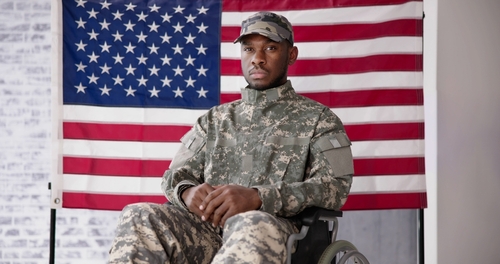
A group of lawmakers last week introduced the Wounded Warrior Bill of Rights (H.R. 3517) to the House, proposing cuts on red tape, improved transparency and greater appeal options for injured veterans navigating medical separation from service and disability benefits.
“All too often, wounded warriors are forced to deal with multiple layers of bureaucracy during their recovery and potential medical separation from the armed services,” U.S. Rep. Jimmy Panetta (D-CA), one of the bill’s authors, said. “Unfortunately, the ambiguous and confusing process leaves limited options for servicemembers when they have to appeal medical evaluation decisions. The Wounded Warrior Bill of Rights Act would return authority to adjudicate appeals to military commanders within each branch, streamlining the process and ensuring transparency as well as accountability. Wounded warriors have sacrificed so much for our country and deserve a fair, straightforward process that respects their service and ensures that they receive their proper disability benefits.”
Currently, servicemembers are assessed and deemed either fit to continue military service or analyzed for the disability benefits they might be entitled to by the civilian-run Defense Health Agency (DHA). However, the legislation’s sponsors maintained that this agency has an unclear command structure, leaving servicemembers caught in limbo as they try ineffectively to appeal decisions made by a process known as the Integrated Disability Evaluation System (IDES), and more specifically, the Medical Evaluation Board (MEB) and Physical Evaluation Board (PEB).
If a servicemember deemed no longer fit for active duty wishes to appeal benefits determined by the PEB, there are few viable paths for them to take. As such, the Wounded Warrior Bill of Rights would place the ability to adjudicate appeals to military commanders within each branch, granting active duty service members authority over the process.
“When I was lying in Walter Reed, all of my time and energy was spent on recovery – learning to walk with two prosthetic legs and figuring out how I was going to continue to serve my country kept me plenty busy,” U.S. Rep. Brian Mast (R-FL), another sponsor, said. “The last thing I would’ve had any patience for would have been trying to navigate the bureaucracy of medical separation. I want to make sure no wounded warrior ever gets stuck in this infuriating merry-go-round or is screwed over by nameless, faceless bureaucrats.”
In addition to Mast and Panetta, H.R. 3517 was cosponsored by U.S. Reps. Cathy McMorris Rodgers (R-WA), Rick Larsen (D-WA) and Rich McCormick (R-GA).




